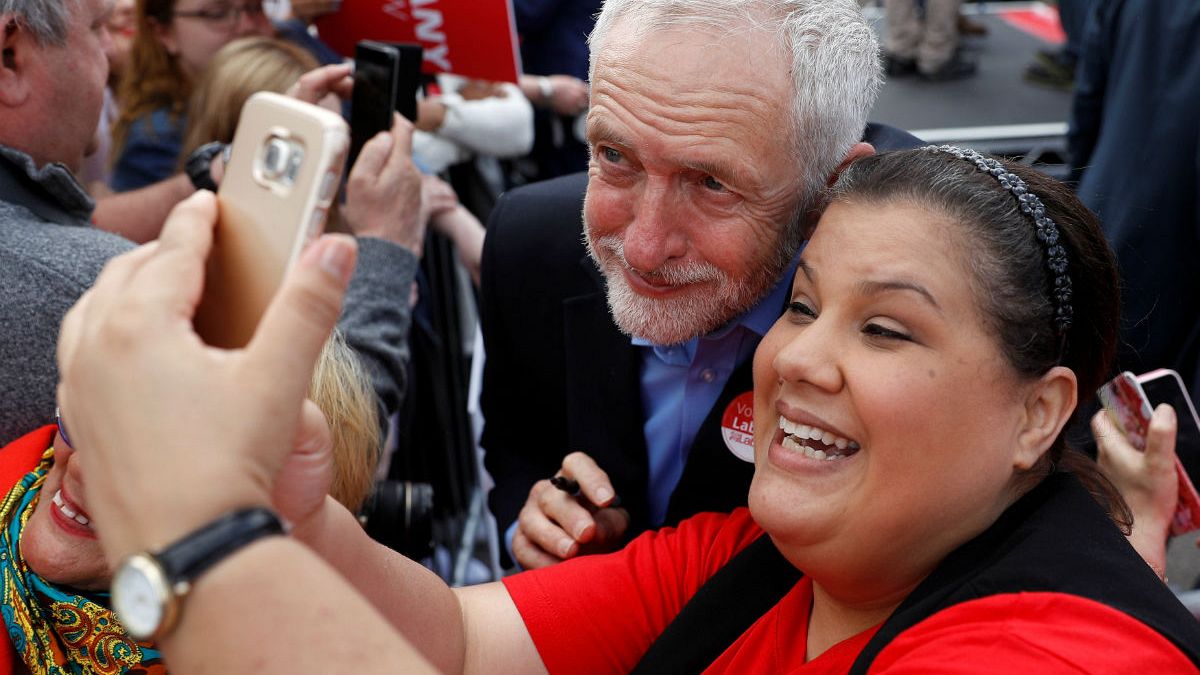How has Jeremy Corbyn's labour party gone from "virtual extinction" to formidable political opponent in the upcioming general election?
By Rodney Barker, Emeritus Professor of Government at London School of Economics (LSE)
What are we doing when we vote? One picture is of voters rationally and in isolation from everyone else making a chess move in a complex game of calculated advantage and disadvantage. This account would explain, or partly explain, tactical voting when existing loyalties are put to one side in order to stop a candidate who is hated more than the voter’s usual representative is loved. But if that were all there was to it, safe seats would evaporate as rational calculating voters decided there was no need to vote and they would rather cook supper, mow the lawn, or watch the football on television. Something else is going on.
In voting, citizens are making a statement about who they support, but they are also, and crucially, making a statement about themselves, and not only that, but are cultivating an identity, not just expressing it, but enhancing it. That’s why the public identity of politicians is of such importance in democratic politics: voters, citizens, associate themselves with people who seem to be like themselves. But not too much like themselves. A successful political image is always a super version of the ordinary, and the game is to get the balance between charisma and representativeness just right. A politician is like an icon, representing in an intensified and dramatized way the identity that his or her followers share, and which they enhance by the active citizenship of voting, and by association with their fellow supporters and with their candidate.
In Britain the Conservatives have recognised this more consistently than have their opponents, though the left in the Twentieth Century had a readily demonisable, and readily demonised, target in Margaret Thatcher. In campaigning attacks the Conservatives have gone for the player, not the ball, and still have as well a residue of ruling class disdain for anyone who lies outside either their own charmed circle or beyond the frontiers of currently dominant narratives and ideology. Even to wear the ‘wrong’ clothes can provoke a sneer. They have concentrated on personal attacks on potential rivals, and on presenting a narrative of their opponents as marginal, untypical, out of touch with the mass of voters. This story, like the story about markets, liberal economics, and austerity, has been sustained by the power of ideological carpet bombing, and the marginalisation of alternatives in the tyranny of received opinion.
This goes a long way to explaining one of the many curious features of the 2017 General Election. When the decision to go to the country was made, the predominant media narrative was of a Labour Party doomed to virtual extinction, massively behind in the polls, likely to virtually disappear from parliamentary politics. And if nothing changed, and the current narrative were both correct and unchallenged, that would be true. But things do change, choices are made, and the impossible becomes possible by someone choosing ‘unrealistic’ policies and making ‘unrealistic’ claims and giving ‘out of date’ or (and that’s the alternative) ‘fantastic’ narratives.
But once campaigning began, something happened which took this dominant and pervasive account by surprise. Up until then, the prevailing account of the Labour leader Jeremy Corbyn had been of an unrealistic, extremist, out of touch and old-fashioned.
Once the campaign began, and some account had to be given of the Labour manifesto, and some reporting on the Labour leader’s speeches, it was difficult for a predominantly right wing media entirely to ignore Corbyn, whose values and aims – a simple rejection of austerity on both moral and economic grounds, a belief in the central importance of properly funded public services from health to railways, a rejection of a taxation system which let large corporations off lightly and prioritised making thing better for the wealthy – suddenly seemed sensible and modest not just to actual and potential Labour voters, but to ordinary citizens beyond the left. Corbyn slowly but transformingly was presented and could be seen as someone who, at last, attacked an entire system of privilege and inequality and extreme economic ideologies. He was no longer the impractical leader of an out of date party, but a champion of public services in health, education, and transport, services which were valued by ordinary voters, the many not the few, and a fundamental context for their wellbeing. A manifesto which had been anticipated as a recipe for disaster became the prospectus of a party which seemed every day to narrow the gap between it and the Conservatives.
Polls are never as scientific as their creators and publishers like us to believe, and do indeed sometimes believe themselves, and as politicians never tire of saying, especially when the polls are not in their favour, the poll that matters is the result of the election. But whatever happens in the United Kingdom on June the 8th, the belief that there is only one common sense, in economics or any other part of public life, will have been given a severe shaking which can do nothing but good for democracy.
Rodney Barker is Emeritus Professor of Government at London School of Economics (LSE).
Another recent publiciation by Prof. Barker can be found here
The views expressed in opinion articles published on euronews do not represent our editorial position












